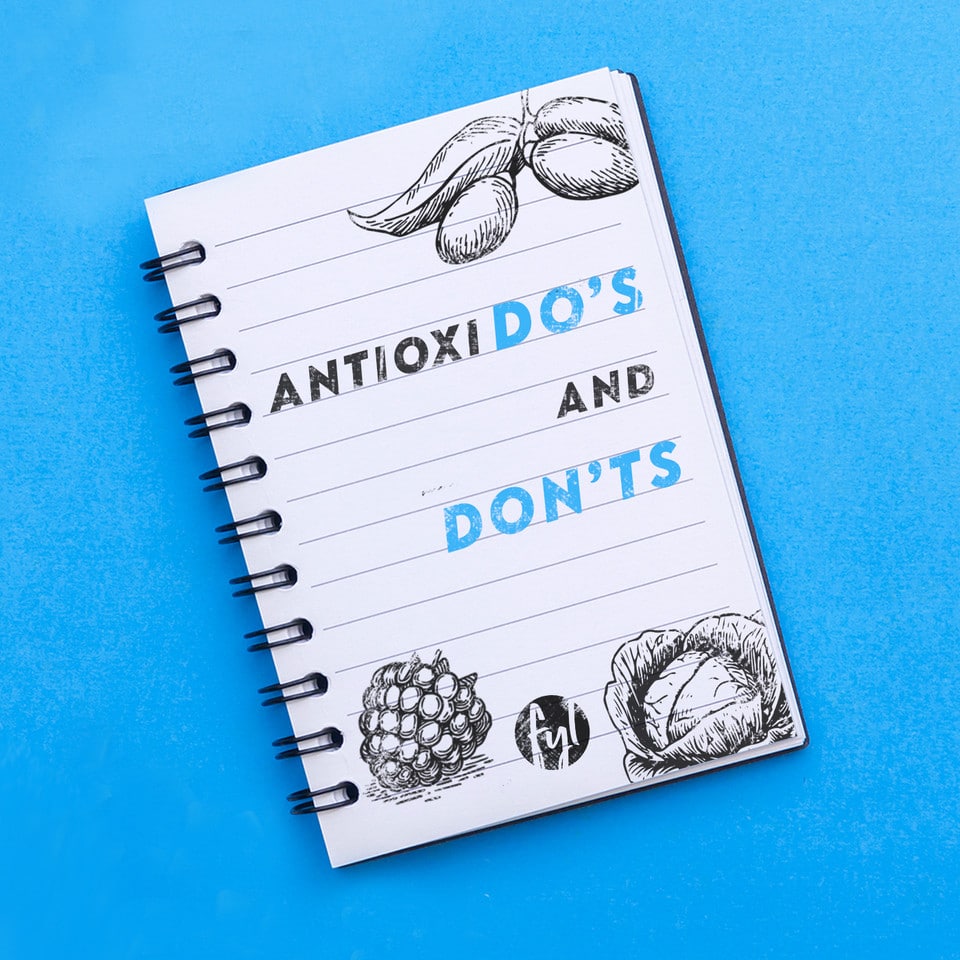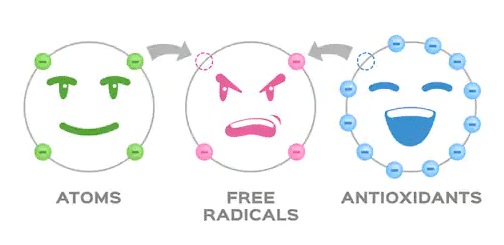You might have noticed the words ‘antioxidants’ and ‘free-radicals’ getting thrown around on social media and health magazines. There are thousands of supplements and foods claimed to boost your intake of antioxidants so you can reap the ‘benefits’… But what are those benefits? And what the hell are antioxidants?!
Here, we will break down what they are and where you can get them in your diet.
What Are Antioxidants?
Firstly, it helps to understand what a ‘free-radical’ is, and this requires a little bit of chemistry. A free radical is an atom that contains an unpaired electron. They damage cells by stealing electrons from cell membranes to help “balance” their ionic charge. They are also often called scavengers for this reason.
Antioxidants work to neutralise the effects of free radicals by donating electrons to stabilise them. Once the free-radical is stabilised, they are no longer a threat to our cells. A unique property of antioxidants is that they can donate an electron without becoming free radicals themselves.
Free-radicals are generated continuously within the body as a result of normal metabolic processes. UV light, chemicals, tobacco, medications, and certain foods can also increase the number of free-radicals.
If an imbalance between the production of free-radicals and the body’s ability to counteract their harmful effects through neutralisation with antioxidants occurs, this is known as oxidative stress. Mild forms of oxidative stress are normal and not problematic. However, long-term oxidative stress results in damage to cells and their DNA, leading to gene mutations or tissue malformations. This acceleration of damage to cells and DNA can contribute to aging and may contribute to the development of a range of conditions.
Effects of Oxidative Stress:
- Immune System e.g. Chronic inflammation, auto-immune disorders, cancer
- Neurodegenerative conditions e.g. Alzheimer’s, Parkinson’s disease
- Eyes e.g. Macular degeneration
- Lung e.g. Asthma, COPD, allergies, cancer
- Cardiovascular Conditions e.g. High blood pressure, atherosclerosis, and stroke
- Joints e.g. Rheumatoid arthritis, osteoarthritis, psoriasis
- Skin e.g. Aging, melanoma
Where Do We Get Them From?
Our body produces its own very powerful endogenous antioxidants, but we can also consume foods that are rich sources of antioxidants. Plant foods provide the richest source of antioxidants including fruit, vegetables, legumes, nuts and wholegrains. Some meats, poultry and fish also provide antioxidants which may help to reduce the effects of free radicals.
What about Antioxidant Supplements?
The short answer, no. Antioxidants are more effective when obtained from whole foods rather than isolated from food as they are in supplements. In fact, they can be totally ineffective or do more damage than good. They may increase cancer risk, reduce exercise performance, and cause birth defects.
How to Increase Your Intake of Antioxidants?
Supplements are likely a waste of money. The very best way is to increase your intake of antioxidants is to eat more antioxidant-rich plant foods. Here are some practical strategies:
- Eat two pieces of fruit daily
- Drink a cup of green tea each day
- Eat a wide range of different coloured vegetables each day
- Aim to have 2-3 cups of vegetables each day.
- Aim to have legumes two times a week
As you can see, antioxidants play a crucial role in reducing inflammation within the body and preventing chronic disease. If you would like more information or help to improve your intake of antioxidants, book an appointment to see one of our dietitians.








